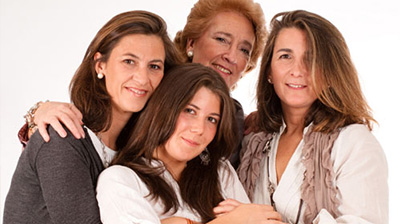
2. Real world assessment of glycemic control among female diabetes subjects : An observational cohort study

The study was presented from Jothydev’s Diabetes Research Center, Trivandrum at the
International Diabetes Federation Congress 2019, organized by IDF at Busan. The Research
team headed by Dr.Jothydev Kesavadev included Bhavya Balan Chandrika, Lakshmy Ramachandran,
Annie Ajai, Gopika Krishnan and Sunitha Jothydev.
Diabetes and its management among women are considered challenging and different when compared to their men counterparts. Several socioeconomic, cultural and biological factors are estimated to impact men and women diabetes subjects differently. A plethora of epidemiological evidence suggests that women diabetes subjects are more susceptible to cardiovascular disease, stroke, cancer, depression, osteoporosis, increased morbidity and mortality than men with diabetes. This study aims to assess the glycemic control among female subjects with diabetes being followed up via integrated diabetes care.
The 5-year follow-up data of 800 consecutive female T2DM patients enrolled in DTMS with mean A1c ≥ 6.5 % were identified from EMR. Subjects with virtual consultations ≥ 1 in 3 months and physical visit ≥ 1 in 3y were considered to have regular follow-up. CKD stage 4 & 5 were excluded from the study. Glycemic parameters of 326 female subjects having regular follow up and 318 female subjects having irregular follow-up were analysed. Average age 49.30 ± 7.30 years, diabetes duration 10.36 ± 5.67 years, baseline A1c: 8.38 ± 0.67% were considered regular follow-up and mean age 48.84 ± 8.24 years, diabetes duration 9.78 ± 5.03 years, mean A1c 8.40 ± 1.42% were considered irregular follow- up. A separate cohort of 312 male diabetes subjects having regular follow-up (average age 50.15 ± 7.58 years, diabetes duration 10.81 ± 5.02 years, mean A1c:8.50 ± 1.45%) was compared with female diabetes subjects with regular follow up.
Male subjects on regular follow-up achieved a significant reduction in A1c (-1.62, p-value < 0.0001) whereas female subjects on regular follow-up failed to achieve statistically significant A1c reduction (-0.85; p-value 0.0744) during the 5 year follow-up period. Significant reduction in FBS was observed for both males (-37.93, p-value 0.0429) and females (-57.52, p-value 0.0015) on a regular follow-up. Women with irregular follow-up (mean A1c change: -0.4833, p-value 0.2521) failed to achieve significant A1c reduction.
Women with diabetes though followed up via integrated diabetes care failed to achieve glycemic targets when compared to their male counterparts. This disparity may be attributed to socio-cultural components, family priority setting, gender discrimination or lack of time for self-care and regular exercise. This calls for an increased need for women-centric studies to formulate customized guidelines for diabetes care in women taking into consideration their socio-economic and biological aspects.
For enquiries info@jothydev.net.
Please visit: jothydev.net | research.jothydev.com | diabscreenkerala.net | jothydev.com/newsletter
